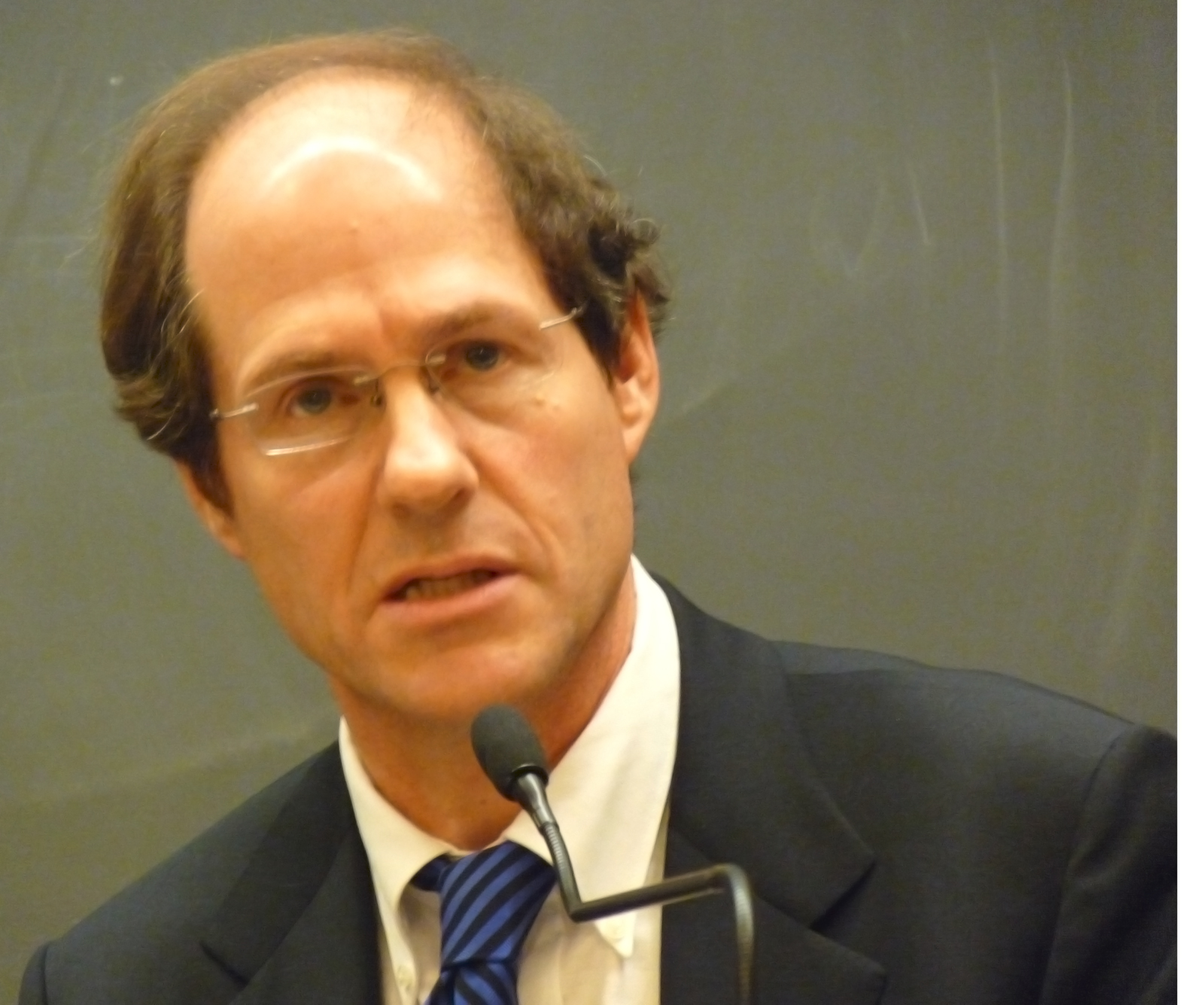
Cass Sunstein, photo credit: Harvard Law Record
Did you hear that Cass Sunstein has made top draft pick for President Obama and James Clapper's 'NSA Review Committee'?
It's an odd choice for an oversight panel, but that's not a big deal. After all, the panel's goal isn't to provide oversight but rather to offer public relations advice meant to repackage and sell the NSA's surveillance to an overwhelmingly distrustful public. Sunstein is a defender of military commissions, supported President Bush's nomination of John Roberts to the Supreme Court, endorsed warrantless wiretapping, and was a major advocate of the law that institutionalized the latter — the FISA Amendments Act of 2008.
Marcy Wheeler helpfully reminds us that Sunstein has advocated another extremely anti-democratic program. His 'fight conspiracy theorists with government conspiracies' plan is here described by Glenn Greenwald:
In 2008, while at Harvard Law School, Sunstein co-wrote a truly pernicious paper proposing that the U.S. Government employ teams of covert agents and pseudo-”independent” advocates to “cognitively infiltrate” online groups and websites — as well as other activist groups — which advocate views that Sunstein deems “false conspiracy theories” about the Government. This would be designed to increase citizens’ faith in government officials and undermine the credibility of conspiracists. The paper’s abstract can be read, and the full paper downloaded, here.
Maybe his appointment to serve on the NSA review committee will give Sunstein an opportunity to implement his pro-US government propaganda ideas? He will be in the midst of a very receptive audience. After all, the military has already set aside millions of dollars for its online propaganda efforts, and the (admittedly thin) barrier that once prevented the US government from spewing propaganda at people in the United States has been dismantled.
Like Marcy Wheeler says, all of this makes Sunstein a great fit for the NSA review committee, given that its primary goal is to 'restore the public trust' — not to meaningfully provide oversight over or reform intelligence agency policies.
If the committee was interested in reform, Sunstein would be an odd choice. Back in 2010, as democrats and the president geared up for a Supreme Court nomination battle in congress, the New York Times published a piece claiming that a Sunstein nomination would 'excite the left.' Greenwald hit back hard against that bizarre assertion.
Sunstein, Greenwald reminds us, was a defender not only of the Bush military commissions, but also the warrantless wiretapping program itself — a program he is now tasked with overseeing repackaging and selling to the public as Freedom, Justice and Democracy.
[I]n 2005, Sunstein became the hero of the Bush-following Right when, in the wake of revelations that the Bush administration was illegally eavesdropping on Americans, he quickly proclaimed that Bush was within his legal rights to spy without warrants in violation of FISA. Sunstein defended Bush’s NSA program by embracing the two extremist arguments at the core of Bush/Cheney lawlessness: that (1) the AUMF silently authorized warrantless eavesdropping in violation of FISA and, worse, (2) the President may have a plausible claim that Article II ”inherently” authorizes warrantless eavesdropping regardless of what a statute says.
In a March, 2006 Washington Post article, Sunstein solidified his credential as Leading Democratic-Law-Professor/Bush-Defender by mocking the notion that Bush had committed crimes while in office:
[Harvard Law Professor Laurence] Tribe wrote [Rep. John] Conyers, dismissing Bush’s defense of warrantless surveillance as “poppycock.” It constituted, Tribe concluded,“as grave an abuse of executive authority as I can recall ever having studied.”
But posed against this bill of aggrievement are legal and practical realities. Not all scholars, even of a liberal bent, agree that Bush has committed “high crimes and misdemeanors.” Bush’s legal advice may be wrong, they say, but still reside within the bounds of reason.
“The Clinton impeachment was plainly unconstitutional, and a Bush impeachment would be nearly as bad,” said Cass R. Sunstein, a professor of constitutional law at the University of Chicago. “There is a very good argument that the president had it wrong on WMD in Iraq but that he was acting in complete good faith.”
Sunstein argues that Bush’s decision to conduct surveillance of Americans without court approval flowed from Congress’s vote to allow an armed struggle against al-Qaeda. “If you can kill them, why can’t you spy on them?” Sunstein said, adding that this is a minority view.
In 2008, Sunstein became the leading proponent of the Bush/Cheney-sponsored bill to legalize Bush’s warrantless eavesdropping program and to immunize lawbreaking telecoms, a bill which Obama — advised by Sunstein — ended up voting for in violation of his pledge to filibuster.
In sum, Sunstein has long been a proponent of unconstitutional, mass surveillance and extreme, even totalitarian state power exercised in the name of National Security. Those views, combined with his depraved fascination with elaborate propaganda schemes meant to deflect attention away from government abuses and to foster trust in (untrustworthy) government institutions, make him an ideal candidate for an NSA review committee that appears to be intent on restoring the public trust without addressing or challenging the government's unconstitutional surveillance programs. All signs suggest that Sunstein will be a major asset for that project.
Let's just agree to not call it oversight.
